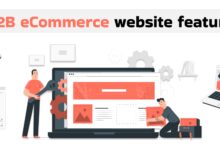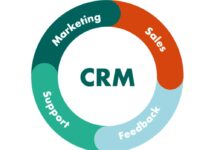B2B Marketplace: 7 Powerful Insights to Dominate Business Commerce
Ever wondered how companies buy and sell in bulk without stepping into a physical store? Welcome to the world of the b2b marketplace — where digital meets demand, and scale meets speed.
What Exactly Is a B2B Marketplace?

The term b2b marketplace might sound technical, but it’s simpler than you think. It refers to an online platform where businesses buy and sell products or services to one another. Unlike B2C (business-to-consumer) platforms like Amazon or Shopify, which cater to individual shoppers, a b2b marketplace is built for bulk transactions, long-term contracts, and complex supply chains.
Defining the B2B Marketplace Model
In a traditional retail setup, a manufacturer sells goods to a distributor, who then sells to retailers. In a b2b marketplace, this entire chain can be streamlined digitally. Platforms like Alibaba and Foxconn Connect allow manufacturers, wholesalers, and service providers to connect directly with buyers — cutting middlemen and reducing friction.
- Transactions are typically high-volume and high-value.
- Pricing is often negotiated or tiered based on order size.
- Relationships are long-term, with contracts and service-level agreements (SLAs).
How It Differs from B2C Marketplaces
While both B2B and B2C marketplaces operate online, their core mechanics differ significantly. In B2C, the decision-making process is quick and emotional. A customer sees a product, likes it, and buys it. In contrast, a b2b marketplace involves multiple stakeholders — procurement officers, finance teams, logistics managers — and decisions are data-driven and strategic.
- B2C: One-click purchases, fixed pricing, mass marketing.
- B2B: Custom quotes, bulk discounts, relationship-based sales.
- B2B buyers expect detailed product specs, certifications, and supply chain transparency.
“The future of B2B commerce isn’t just digital — it’s dynamic, data-rich, and demand-driven.” — Gartner Research, 2023
The Evolution of B2B Marketplaces Over Time
The b2b marketplace didn’t emerge overnight. Its roots trace back to the early days of e-commerce, when companies began experimenting with online catalogs and EDI (Electronic Data Interchange) systems in the 1980s and 1990s.
From EDI to E-Commerce Portals
Before the internet, businesses relied on EDI to exchange invoices, purchase orders, and shipping notices via private networks. While efficient for its time, EDI was rigid and expensive. The rise of the web in the late 1990s gave birth to early B2B e-commerce portals like Covisint, which connected automotive suppliers with OEMs.
- These platforms were often industry-specific and closed ecosystems.
- Limited scalability and high integration costs hindered widespread adoption.
- Still, they laid the groundwork for modern digital procurement.
The Rise of Global B2B Platforms
The 2000s saw the emergence of global giants like Alibaba, which opened up international trade to small and medium enterprises (SMEs). Unlike earlier systems, these platforms were open, scalable, and user-friendly.
- Alibaba’s success proved that trust could be built digitally through ratings, escrow services, and verification systems.
- Platforms began offering logistics, financing, and customs support — turning the b2b marketplace into a full-service ecosystem.
- By 2010, B2B e-commerce was growing faster than B2C in many regions.
Key Benefits of Using a B2B Marketplace
Why are more companies shifting their procurement and sales operations to a b2b marketplace? The advantages are compelling, ranging from cost savings to improved agility.
Cost Efficiency and Reduced Overhead
Operating a traditional sales force or procurement team is expensive. Travel, salaries, and administrative costs add up. A b2b marketplace reduces these overheads by digitizing the entire transaction lifecycle.
- Sellers can reach thousands of buyers without hiring regional reps.
- Buyers can compare prices and specs in minutes, reducing negotiation time.
- Automation tools handle invoicing, order tracking, and payment processing.
Access to a Global Supplier Network
One of the most transformative benefits of a b2b marketplace is access to a global pool of suppliers. A manufacturer in Germany can source raw materials from Indonesia, while a distributor in Brazil can find niche components from South Korea.
- Platforms like Global Sources and Made-in-China specialize in connecting international buyers with verified suppliers.
- Buyers gain flexibility in sourcing, reducing dependency on single vendors.
- Suppliers expand their market reach without investing in overseas offices.
“In 2023, 68% of mid-sized manufacturers reported using at least one B2B marketplace for procurement.” — McKinsey & Company
Top B2B Marketplaces You Should Know
Not all b2b marketplaces are created equal. Some focus on specific industries, while others offer broad product categories. Here are some of the most influential platforms shaping the global B2B landscape.
Alibaba: The Global Giant
No discussion of b2b marketplace platforms is complete without mentioning Alibaba. Founded in 1999, it has become the world’s largest wholesale trading platform, connecting millions of suppliers and buyers across 190+ countries.
- Offers everything from raw materials to finished electronics.
- Features Trade Assurance, a buyer protection program.
- Integrates with logistics and payment services like Alibaba Cloud and Ant Group.
Amazon Business: B2B Meets Scale
Yes, Amazon isn’t just for consumers. Amazon Business is a dedicated b2b marketplace that serves enterprises, schools, and government agencies.
- Provides business-only pricing, volume discounts, and tax-exempt purchasing.
- Offers detailed reporting tools for procurement teams.
- Leverages Amazon’s fast shipping and customer service infrastructure.
ThomasNet: The Industrial Specialist
For manufacturers and engineers, ThomasNet is a go-to b2b marketplace for industrial products and custom manufacturing services.
- Focuses on North America but serves global clients.
- Offers CAD models, material certifications, and engineering support.
- Used heavily in aerospace, defense, and heavy machinery sectors.
How to Choose the Right B2B Marketplace for Your Business
With so many options, selecting the right b2b marketplace can be overwhelming. The key is to align the platform’s strengths with your business goals.
Assessing Your Industry and Product Fit
Not every marketplace supports every product type. A chemical supplier won’t find much value on a platform focused on office supplies.
- Look for platforms with strong category representation in your niche.
- Check if competitors or key suppliers are already active on the platform.
- Verify whether the marketplace supports certifications (e.g., ISO, FDA, REACH).
Evaluating Platform Features and Tools
A good b2b marketplace should offer more than just a product catalog. It should provide tools that enhance efficiency and transparency.
- Order management systems with real-time tracking.
- Integration with ERP or procurement software (e.g., SAP, Oracle).
- Analytics dashboards for sales performance and buyer behavior.
Understanding Fees and Revenue Models
Most b2b marketplaces charge fees in one of several ways: listing fees, transaction commissions, subscription models, or a combination.
- Some platforms like Alibaba charge suppliers for premium listings (Gold Supplier program).
- Others like Amazon Business take a commission on each sale.
- Free-to-list models may seem attractive but could lack visibility or support.
“The best marketplace for your business isn’t the biggest — it’s the one that fits your operational model.” — Harvard Business Review
Challenges and Risks in B2B Marketplaces
Despite their advantages, b2b marketplaces come with challenges. From trust issues to platform dependency, businesses must navigate these risks carefully.
Trust and Verification Issues
Unlike B2C, where a single negative review can deter a buyer, B2B transactions involve high stakes. A faulty component can halt production lines. Therefore, trust is paramount.
- Counterfeit products and fake suppliers remain a concern on open platforms.
- Buyers must verify supplier credentials, certifications, and past performance.
- Platforms are responding with verification badges, third-party audits, and escrow services.
Competition and Price Pressure
While access to global buyers is a benefit, it also means facing intense competition. On platforms like Alibaba, dozens of suppliers may offer identical products.
- Price wars can erode margins, especially for commoditized goods.
- Sellers must differentiate through quality, service, or customization.
- Building a brand presence on the platform becomes critical.
Dependency on Platform Algorithms
Just like in B2C, visibility on a b2b marketplace often depends on algorithms. If your listings don’t rank well, you won’t get discovered.
- Platforms prioritize sellers with high ratings, fast shipping, and responsive communication.
- Changes in search algorithms can suddenly reduce your visibility.
- Over-reliance on a single platform can be risky — diversification is key.
The Future of B2B Marketplaces: Trends to Watch
The b2b marketplace is evolving rapidly. Emerging technologies and shifting buyer expectations are reshaping how businesses connect and transact.
AI and Personalization in B2B Commerce
Gone are the days of static catalogs. Modern b2b marketplaces are using AI to deliver personalized experiences.
- AI-powered recommendation engines suggest relevant products based on past purchases.
- Chatbots handle routine inquiries, freeing up sales teams for complex deals.
- Predictive analytics help buyers forecast demand and optimize inventory.
Integration with Supply Chain and ERP Systems
The next frontier for b2b marketplaces is seamless integration with enterprise systems. Imagine a procurement manager approving a purchase that automatically updates inventory, triggers payment, and schedules delivery — all within one ecosystem.
- APIs are enabling real-time data exchange between marketplaces and ERP platforms.
- Platforms like SAP Ariba are leading the charge in integrated B2B commerce.
- This reduces manual errors and accelerates decision-making.
The Rise of Niche and Vertical Marketplaces
While generalist platforms like Alibaba dominate, there’s growing demand for specialized b2b marketplaces. These vertical platforms cater to specific industries like healthcare, construction, or food & beverage.
- Niche platforms offer deeper industry knowledge, regulatory compliance, and tailored services.
- Examples include MedAccred for medical devices and FoodMarket for food suppliers.
- They build stronger trust by focusing on quality over quantity.
“By 2025, 80% of B2B sales interactions will occur in digital channels, up from 50% in 2020.” — Forrester Research
How to Succeed as a Seller on a B2B Marketplace
Being on a b2b marketplace isn’t enough — you need a strategy to stand out and convert leads into long-term clients.
Optimize Your Product Listings
Your product page is your digital storefront. Make it count.
- Use high-quality images and detailed specifications (dimensions, materials, certifications).
- Include downloadable resources like datasheets, CAD files, and compliance documents.
- Write clear, benefit-driven descriptions — not just features.
Build Trust Through Reviews and Ratings
In the absence of face-to-face meetings, social proof is crucial.
- Encourage satisfied buyers to leave reviews.
- Respond professionally to negative feedback.
- Highlight testimonials and case studies on your profile.
Leverage Data and Analytics
Most platforms provide seller dashboards with insights into views, clicks, and conversion rates.
- Use this data to refine pricing, adjust inventory, and target promotions.
- Monitor which products are trending and why.
- Identify geographic markets with high demand.
How Buyers Can Maximize Value on a B2B Marketplace
For procurement teams, a b2b marketplace is more than a shopping site — it’s a strategic tool for cost control and supply chain resilience.
Use Advanced Search and Filtering Tools
Don’t just browse — search smartly.
- Filter by certification, lead time, minimum order quantity (MOQ), and shipping options.
- Use keywords that reflect technical specifications, not just product names.
- Save searches and set up alerts for new suppliers or price drops.
Negotiate and Request Custom Quotes
One of the biggest advantages of a b2b marketplace is the ability to request custom pricing.
- Don’t accept listed prices as final — many sellers are open to negotiation.
- Ask for volume discounts, extended payment terms, or bundled services.
- Use the platform’s messaging system to maintain a record of communications.
Monitor Supplier Performance
Just because a supplier has good ratings doesn’t mean they’ll perform consistently.
- Track delivery times, product quality, and responsiveness.
- Use the platform’s reporting tools to evaluate supplier KPIs.
- Diversify your supplier base to mitigate risk.
What is a b2b marketplace?
A b2b marketplace is an online platform where businesses buy and sell products or services to each other. It streamlines procurement, enables global sourcing, and supports high-volume transactions with features like custom pricing, bulk ordering, and supply chain integration.
How does a b2b marketplace differ from B2C?
Unlike B2C, which focuses on individual consumers and instant purchases, a b2b marketplace involves longer sales cycles, bulk orders, negotiated pricing, and multiple decision-makers. It emphasizes relationships, contracts, and operational efficiency over impulse buying.
Are b2b marketplaces safe for transactions?
Most reputable b2b marketplaces have security measures like supplier verification, escrow payments, and buyer protection programs. However, due diligence is essential — always verify credentials, read reviews, and start with small orders when testing new suppliers.
Can small businesses benefit from b2b marketplaces?
Absolutely. Platforms like Alibaba, Amazon Business, and ThomasNet allow small businesses to access global suppliers, reduce procurement costs, and scale their operations without heavy investment in sales or logistics infrastructure.
What industries use b2b marketplaces the most?
Manufacturing, industrial supplies, electronics, healthcare, construction, and food & beverage are among the top industries using b2b marketplaces. However, adoption is growing across sectors, including professional services and software.
The b2b marketplace is no longer a niche trend — it’s the new backbone of global commerce. From cost savings and global reach to AI-driven personalization and vertical specialization, these platforms are transforming how businesses buy and sell. Whether you’re a supplier looking to expand or a buyer aiming to optimize procurement, understanding and leveraging the power of the b2b marketplace is essential for staying competitive in today’s digital economy.
Further Reading:





